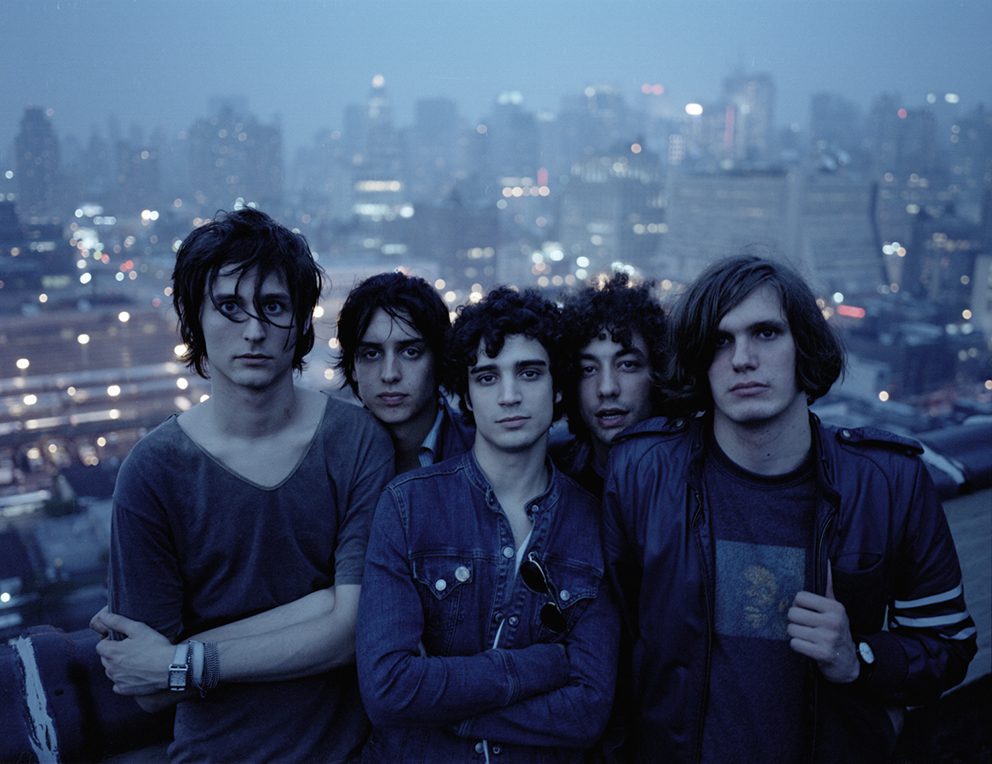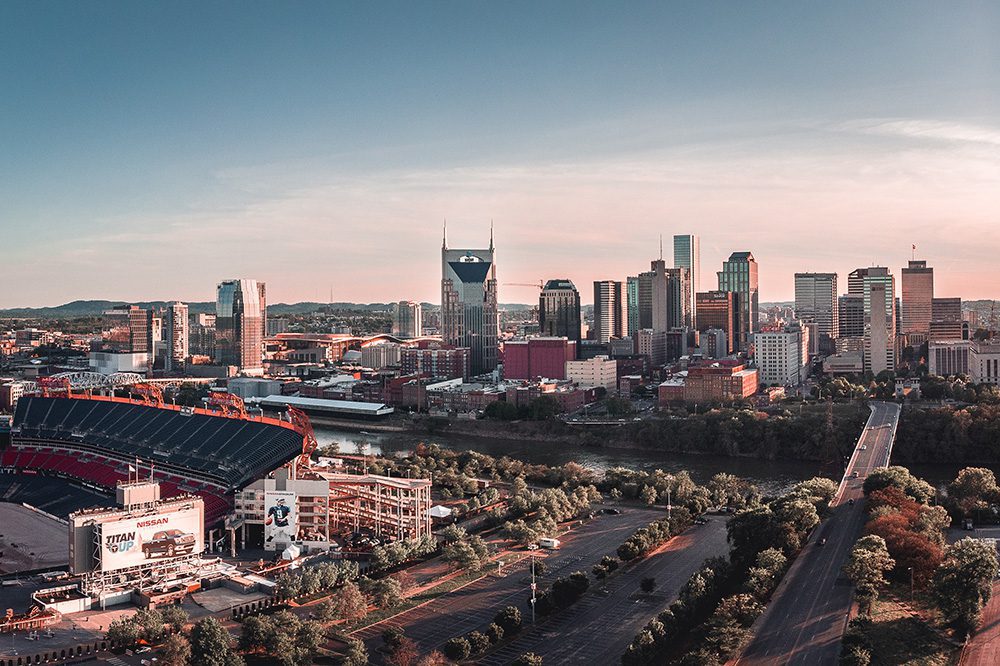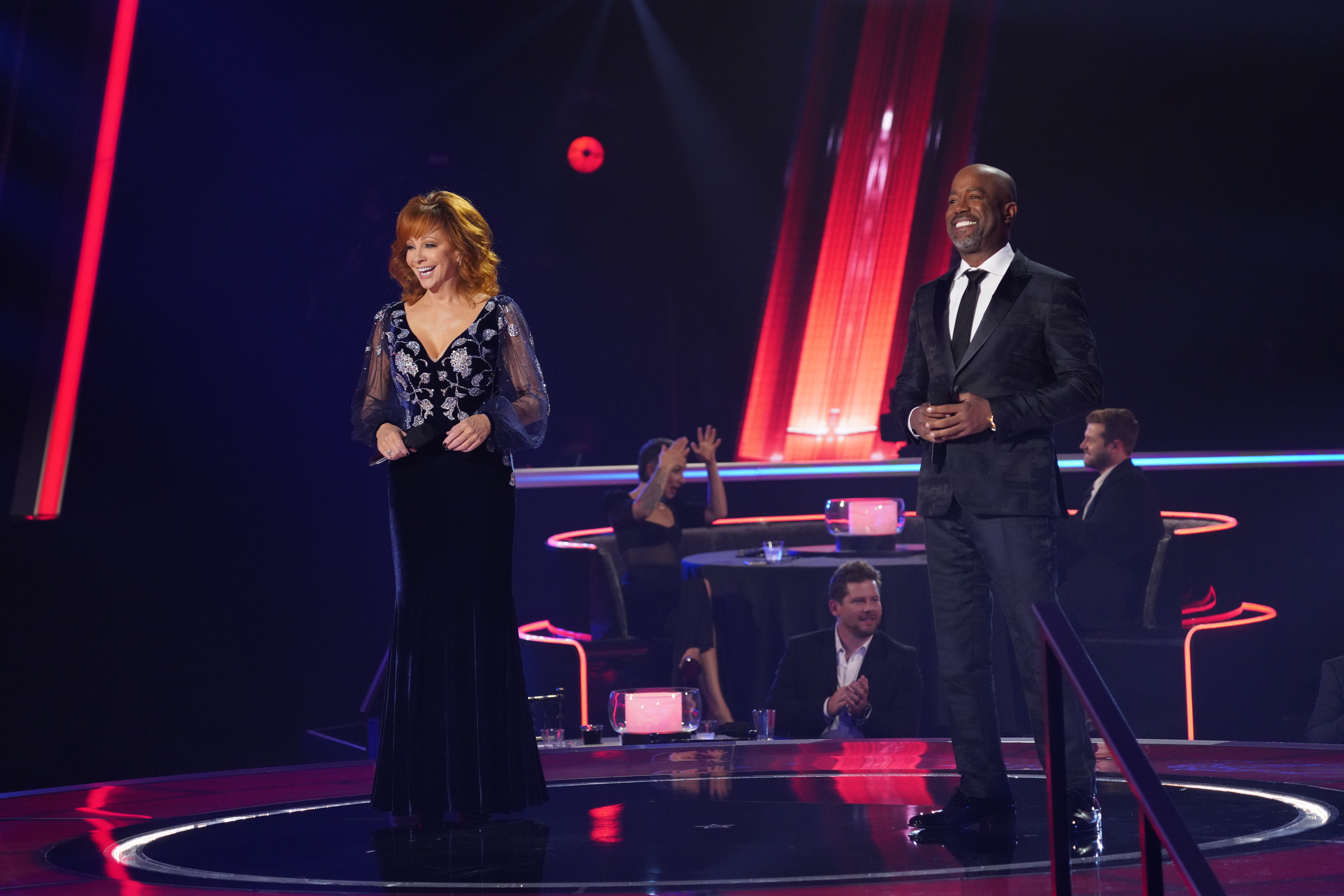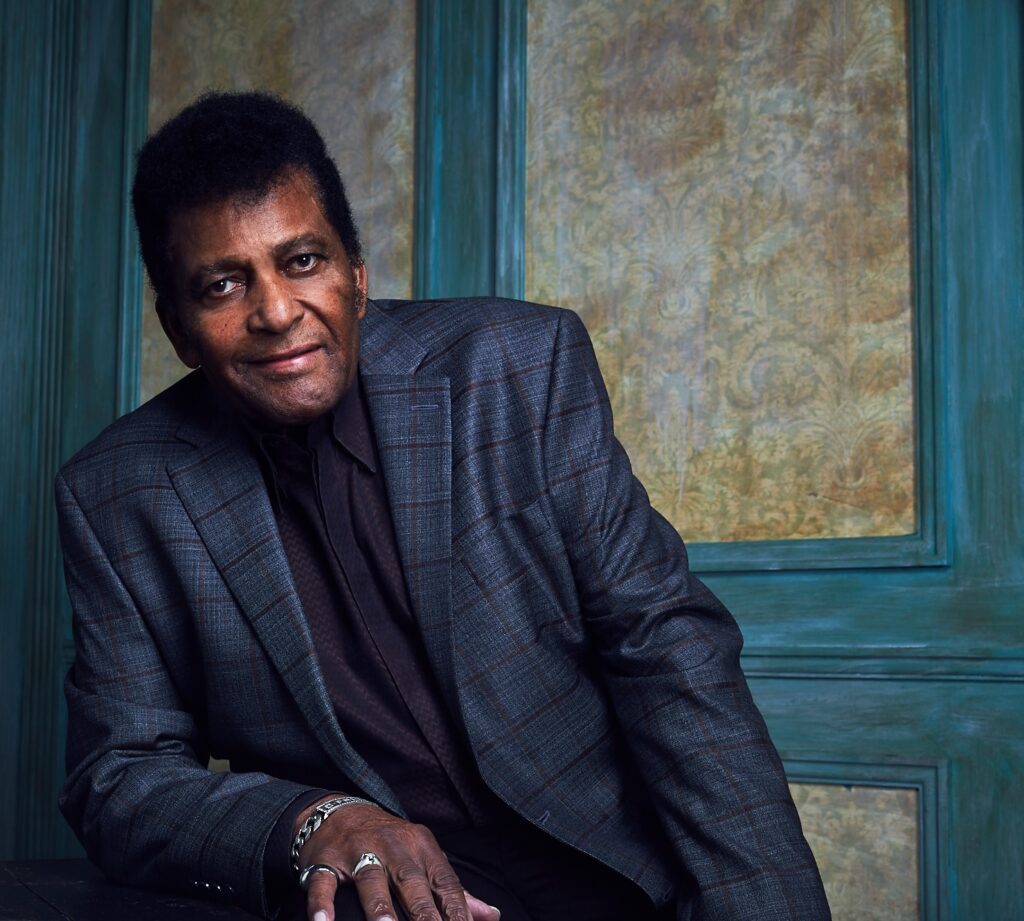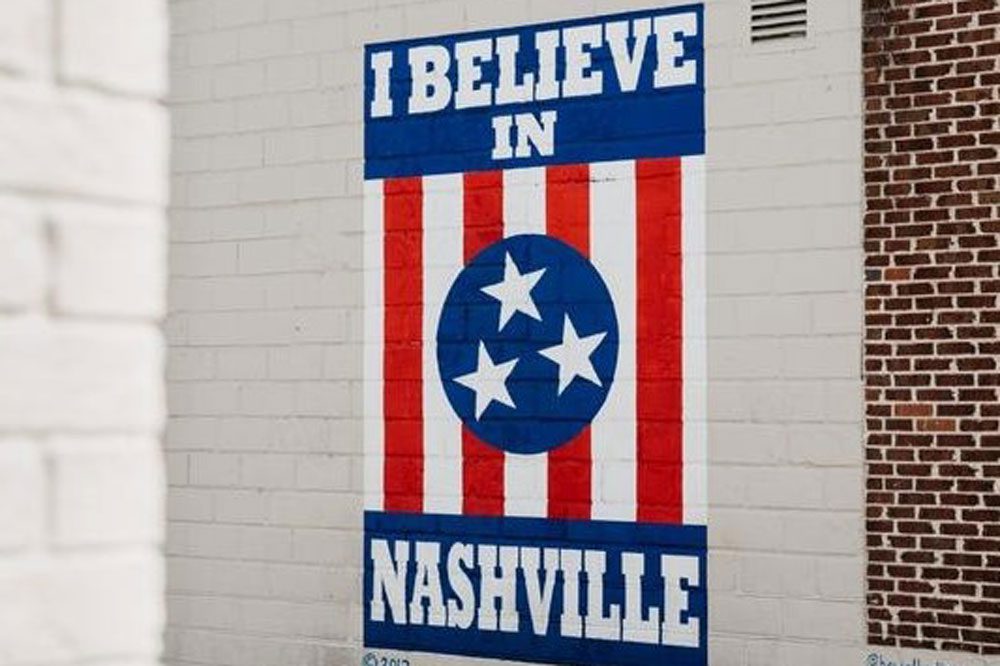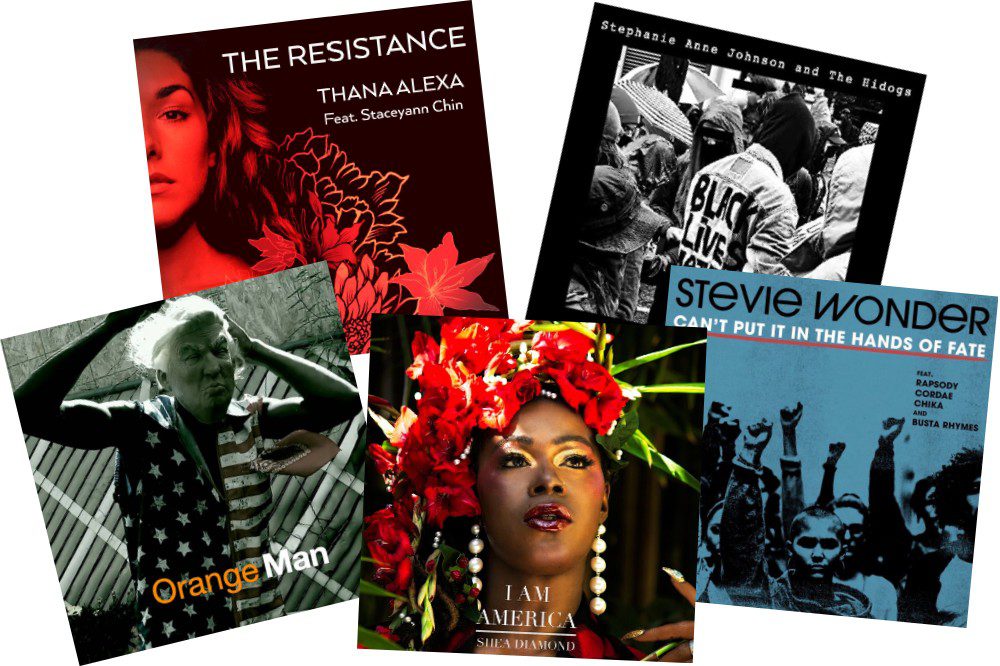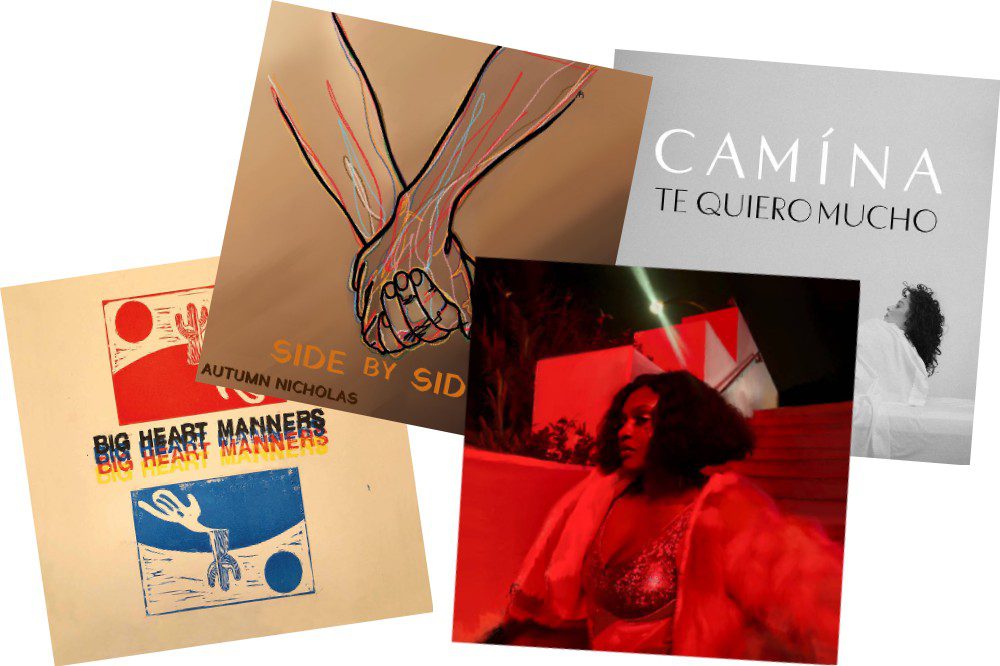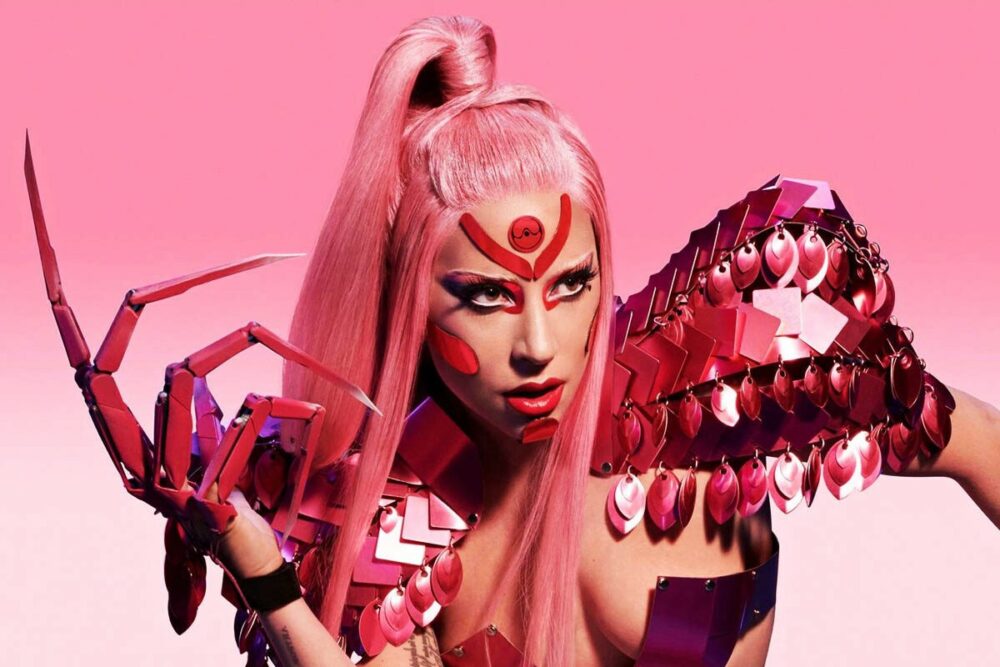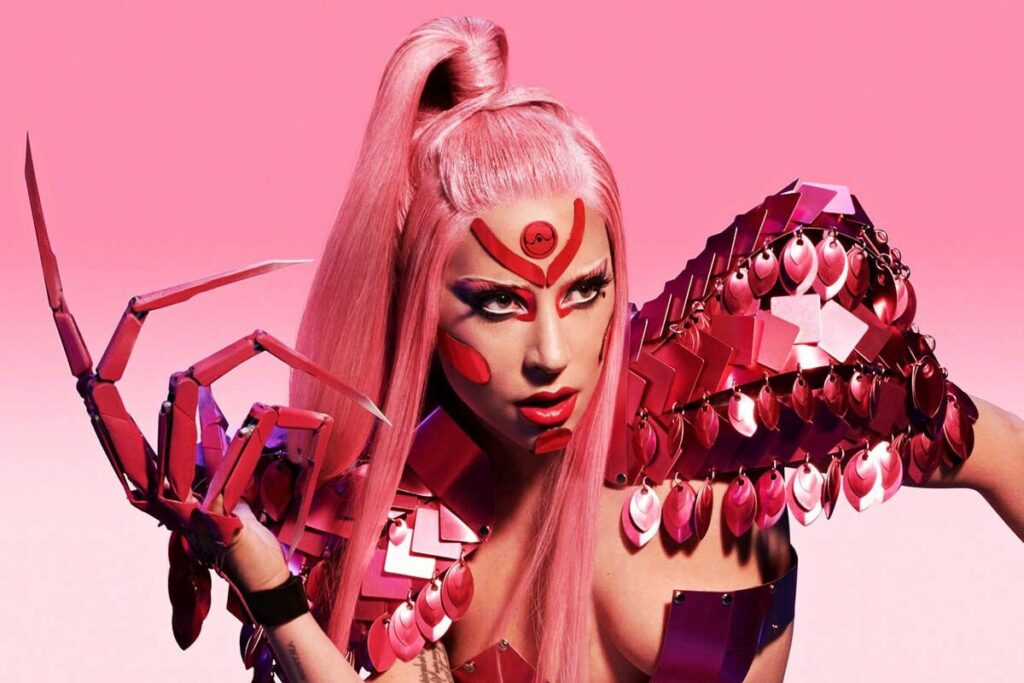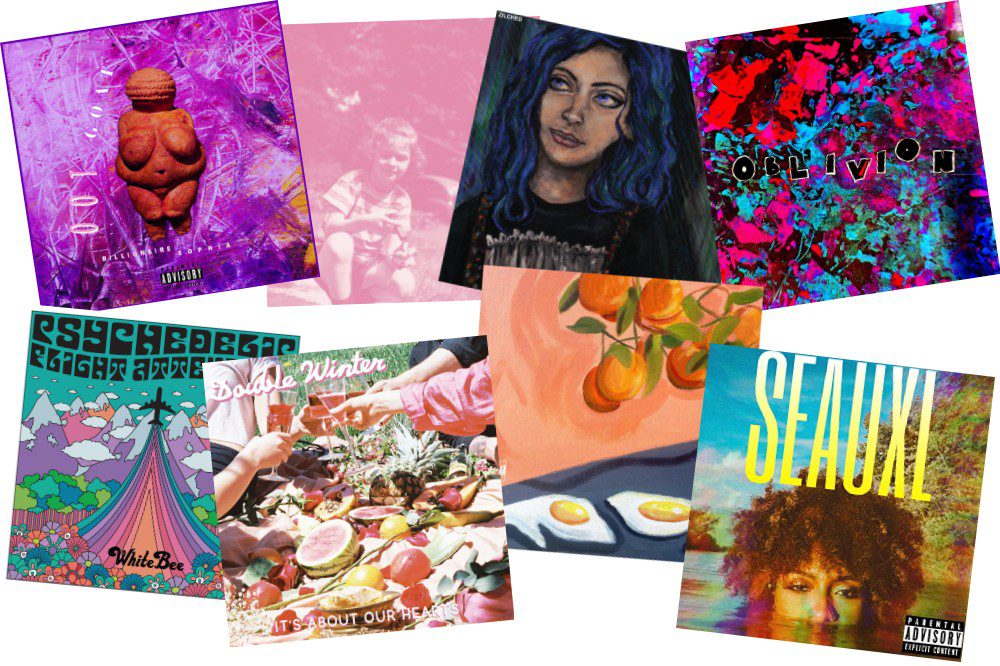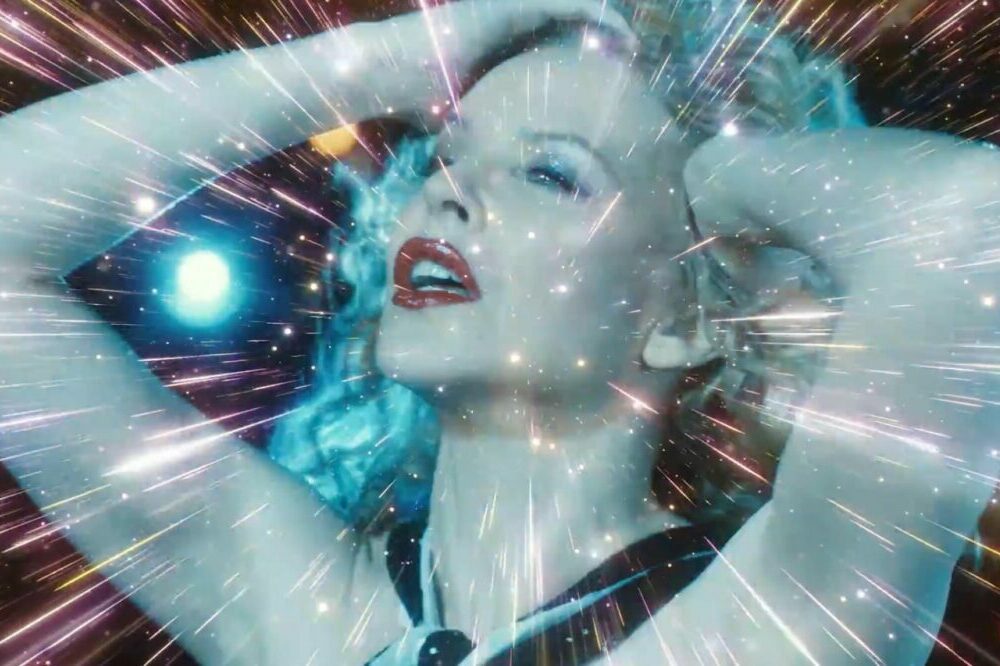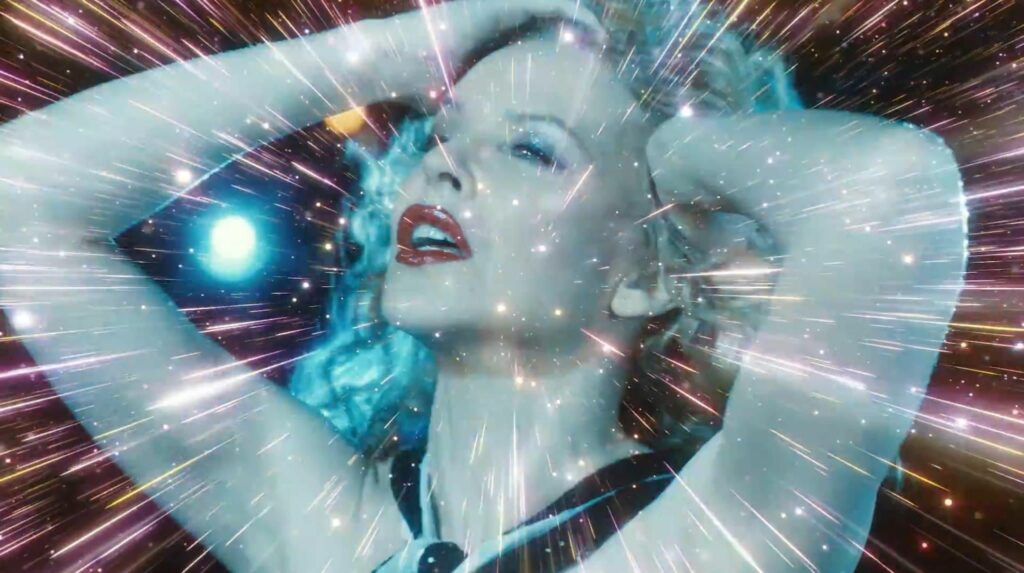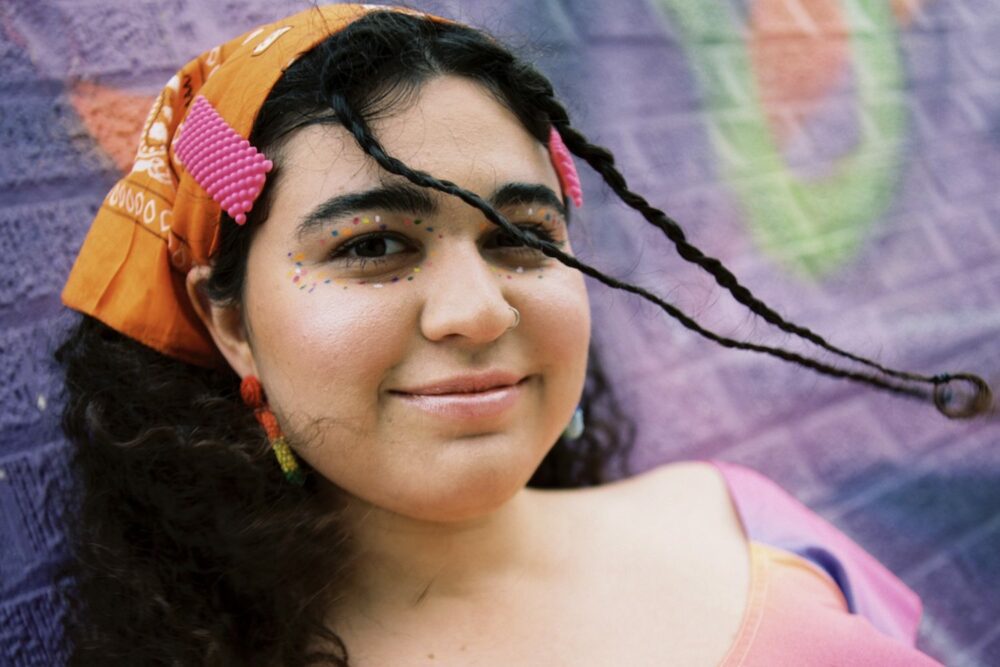
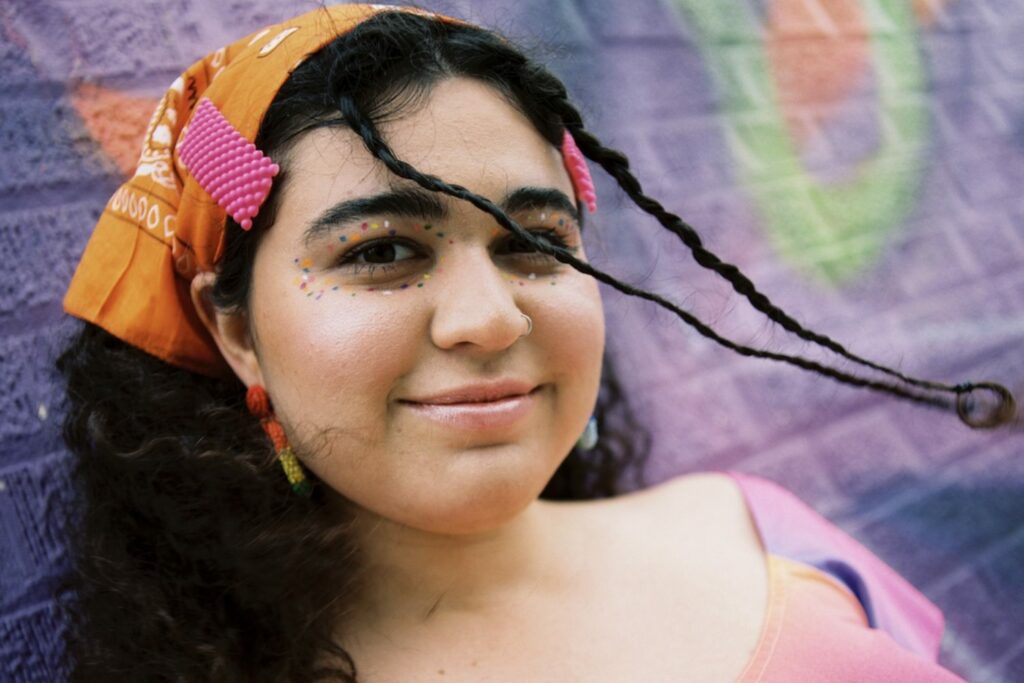
Remi Wolf is impulsive – not that it’s a bad thing. At the beginning of quarantine, she adopted a French Bulldog named Juno four months before dropping her appropriately-titled I’m Allergic To Dogs! EP. The 24-year-old Californian musician’s strong intuition follows throughout her music, from her stream of consciousness songwriting to the multiple career pivots that eventually led to a critically acclaimed EP, a coveted Island Records deal, and an iPhone commercial spot.
None of this is surprising, as Wolf has always been a natural entertainer. She discovered her love of performing early on, and by high school had formed a full band and met her current collaborator Jared Solomon, who goes by solomonophonic. The nearly decade-long friendship with Solomon shows in the music, and the two share a camaraderie that breathes with Wolf’s rollercoaster delivery.
To some extent, Wolf’s excitement is woven into the very fabric of her existence, both literally and figuratively. “Woo!” features sparkly interjections, like a childhood cartoon, that swell into an electrifying R&B pop fusion with punchy drums and tip-toeing piano keys. If that sounds chaotic, it is – in the best way. Much like the trippy visuals created by her trusted collaborator Agusta Yr, or the almost painfully colorful clothing she wears, Wolf’s music is an ever-changing kaleidoscope of pop music at its brightest. She exists right in the middle of current musical trends, featuring elements of PC music, dance, and sultry R&B-tinged pop to create something just as eclectic as she is.
Wolf possesses an intense confidence with a dash of self-deprecation bred from the early days of millennial Internet humor and a short lifetime honing her style and persona. She went from being an accomplished skier to a successful musician while growing up in Palo Alto, an incubator for some of tech’s biggest names, and is more than used to high pressure environments, but that does not mean she isn’t open about the stress either.
On I’m Allergic to Dogs!, her self-described “stream of consciousness” “ADHD explosion” style of writing bubbles to the surface. She explores risky unrequited love in the same breath as being prescribed painkillers by her dentist. Her songs tell stories of hippie frat boys at disco nights and her inability to commit. The magic of Remi Wolf lies in the merry-go-round of her mind that brings childlike wonder with an edge.
In a chat with Audiofemme, Remi Wolf opens up about mental health, childhood television shows, and creating culture on her own terms.
AF: When did you realize you enjoyed performing? Was it something you grew into over time?
RW: I started singing when I was in fourth grade. That was the first time I ever performed for people. I feel like I immediately loved it. When I was in sixth grade, I ended up being in a girl singing group, like a barbershop trio thing. That’s kind of where I ended up learning how to harmonize and the basics of how to sing and perform. We would perform at preschools and we did these little benefit concerts. I really love doing that.
Then, I picked up a guitar when I was probably a freshman in high school and ended up starting a little band with one of the girls from that trio, her name is Chloe. The trio kind of dissolved. We started writing songs and performing covers. We started busking on the street and doing open mics all over the place in my hometown, which eventually led to us starting a full band. That guitar player is now my main collaborator: solomonophonic. We’ve known each other for eight years at this point now.
Then I ended up going to music school for music and songwriting and singing, and now I’m here. So that’s been a lifelong journey.
AF: With the amount of people breaking out at younger and younger ages due to social media, do you ever feel weird about it?
RW: I mean, no. I’m twenty four years old. I’m young. There’s hella kids popping off now at 18. I’ve never had any insecurities about that, though. I don’t think I ever really felt pressure like that. During most of my childhood, I was either in school or I was ski racing. I think a lot of my mental capacity was taken up by that. I was a very active kid. I always say that I feel like I’ve been working since I was eight years old.
I would say I feel a little bit more insecure about that now, because, like I was saying before, there are a lot of people who are popping off at 18. I don’t think it really mattered when I learned how to play guitar. Like, I think it just matters that I learned it. And I’m here, you know?
AF: It’s interesting to see you’ve still internalized those feelings, whether inevitable or not.
RW: Yeah, I don’t know if it’s jealousy. It’s just crazy how the Internet works. People are just able to create their own careers from their bedrooms, you know? I think that that’s crazy. I didn’t really realize when I was young that that was an opportunity. I mean, it’s more of an opportunity now than it was then, but I think it’s cool that people are able to forge a career for themselves, no matter what age.
AF: Who were some of your biggest influences growing up, or your most unexpected influence?
RW: When I was younger and I was performing, I was listening to a lot of the Beatles, Stevie Wonder, Prince, Gwen Stefani, and Chaka Khan. This is always a hard question for me because I feel like I have a really big well of influences. They span all over decades and genres. I never talk about this one; I don’t know why, but I used to love Jason Mraz. Nobody ever talks about him as an influence. He has a lot of really good songs, and he’s a solid songwriter and seems like a nice dude. I’m team Jason.
AF: You said once that growing up in a city like Palo Alto, you had to get culture from other places since it was so tech-focused. Where did you look?
RW: Yeah! I grew up in Palo Alto, which is a very tech-focused city. Obviously, it’s like the birthplace of Facebook and Instagram and fucking Apple. It’s a small suburb. It’s very intense. There’s high pressure academics and stuff like that, which was never really my focus. I mean, I did well in school because you had to, but I was always way more focused on skiing and music and stuff like that.
I’m still learning things every day about the world. I think that for the most part, I was a pretty sheltered kid. I didn’t have the free time to really expose myself to a lot of things. In a way, I’m still growing up, and I’m learning things every day because I have the free time. I’m doing what I love to do now.
I feel like I’m still growing and still learning, even culturally. And I’m discovering new things every day. I want to create culture – I don’t think that it matters how much or how little I was exposed to at a young age.
AF: When you say that you’re creating culture, it almost feels like an unconscious response to not being exposed to many things and working from a different starting point. It’s kind of an advantage.
RW: That’s like a really interesting take. That’s cool that you’ve noticed that. I think that I’m really conscious of that for myself, but that could definitely be why I am so experimental with my music. Right now I feel the most free creatively I’ve ever felt which is cool. Maybe that is because I’ve been away from home for a while now. I don’t know. That’s interesting. I like that.
AF: Let’s talk about style! Have you always dressed the way you do now?
RW: I’ve pretty much dressed the same since I was, like, three years old. My parents would let me wear whatever I wanted to and I was a big pattern mixer like my mom. There’s this one story where my aunt wanted to take me out to eat at McDonald’s or something and I dressed myself. It was a crazy outfit. My aunt was like “I can’t take her out in this outfit!” and my mom was just like “No, she’s not gonna change. Just let her do her thing.” I’ve been pretty expressive with my style for a really long time.
I don’t think it’s anything new. I think now I’m definitely learning a lot more about fashion. I mean, we have Instagram now! You see all the trends and stuff going on. I’m a little bit more tapped into it than I used to be before, but I’ve definitely always been pretty expressive and colorful for sure. I feel like an adult baby a lot. I tell my friends I’m just a baby, like I’m a baby woman.
AF: And to clarify quickly in regards to the name of your EP, you are genuinely allergic to dogs?
RW: I’m truly allergic to dogs, and I have a dog. I love him a lot, and I’m looking into getting allergy shots. Getting a dog was a very impulsive decision for me, which maybe in retrospect, I should have thought about that a little more – I just kind of felt it and I went for it.
I grew up with two labs, so I’ve been around dogs my whole life. I think the allergy is actually a newer development. It happened probably three years ago where I was, like, wait, every time I’m around a dog, I am having sneezing fits! I also developed an allergy to avocados really late too. That was really shitty.
AF: Let’s talk about the retreat you went on a few months ago.
RW: It was a mental health thing for me. I was struggling a lot with my mental health, as I have for a while now, but in quarantine it was right there in front of my face. So, I felt like I had to get away and focus on that for a while. I’m glad I did. I’m doing a lot better now, like taking care of myself. I do therapy twice a week. It’s definitely a new journey for me and I’m just now kind of getting tapped into it.
As soon as my project started taking off and I suddenly had to start working all the time and really focusing on my career and stuff. I was like, “Okay, I can’t ignore this anymore, cause I’ve been ignoring it for a long time.” I want to be healthy and I want to be able to do the things I want to do and not be completely crippled by anxiety and depression, which I feel like I have been for a while. I’m still working through it. I definitely have a lot of anxiety and depression and stuff that I have to deal with on a daily basis, but at least I’m taking care of it now and and making active steps to better myself and be a healthier person overall.
AF: Where does some of that fear come from? Is it fear of being unable to control who is looking at you and how they feel?
RW: At first it was scary. The thing that still gets me is like, “Alright, when is this all gonna crumble down? When is it gonna be over?” I think that I have a bad case of impostor syndrome. It’s just vulnerable putting your art into the world. You don’t know how people are gonna react. I think that when my music first started getting out there, I had thinner skin than I do now. When people would say something mean or negative about me, I would internalize it and react poorly. I kind of just laugh at everything now because, like you said, I have literally no control.
I have no control over what anybody else is gonna do except for myself. Realizing that and realizing that the only thing that I can control is what I do and my actions, I think that’s liberating in a sense, because I don’t really have to fucking worry about how other people perceive me. That’s not my job. My job is to be myself and to do whatever the fuck I want.
AF: How does all this play into your songwriting process? Your songs feel so layered and haphazard and exciting.
RW: I think you’re kind of dead on with that. I start an idea and build it up until I think it’s where it’s supposed to be. We normally start out with a beat or a chord progression, and I pretty much just freestyle until I think it’s done. There’s not a lot of planning to it a lot of the time. I’m very free with my process. It’s hard to explain, but I write pretty fast. Most of the songs that I end up really liking I write in a matter of a couple hours, and I’m 80% done with the song by the end of the day. If that doesn’t happen, then normally the idea will just sit there for a long time.
AF: When you say you freestyle, is it just instrumentally, lyrically, or everything?
RW: Everything is freestyled. Everything is improvised from the melody – the lyrics, the chords, all the parts are made right there on the spot. There’s some songs that I write by myself on a guitar that I fully fleshed out and then I go back in and do production, but that hasn’t been my main process so far. That’s a newer thing that I’m trying out. But even with that, I’m still freestyling with myself and just stream of consciousness until I get something that I feel like is the right direction for the song. It’s kind of hard to explain.
AF: You’ve created such an immersive aesthetic that has become synonymous with who you are. Are there any specific things that stuck with you that helped you create this world?
RW: I think I’m really inspired by TV shows and movies from my childhood. I used to watch this Canadian series called Wee Sing in Sillyville when I was younger, and that’s always stuck with me. I’ve also always loved Teletubbies and this show called The Doodlebops and Spy Kids and Charlie and the Chocolate Factory. Basically all those psychedelic, crazy, weird kids shows that probably wouldn’t get made nowadays.
AF: Who is somebody that you would like to collaborate with – either musically or otherwise?
RW: I would love to collaborate with Michael McDonald. I know that’s kind of a weird one, but I’ve just always admired his songwriting and voice. He’s so talented and a genius, and I feel like I would learn a lot from him. He’s the GOAT for sure. Hopefully we can make that happen.
Follow Remi Wolf on Facebook and Instagram for ongoing updates.

